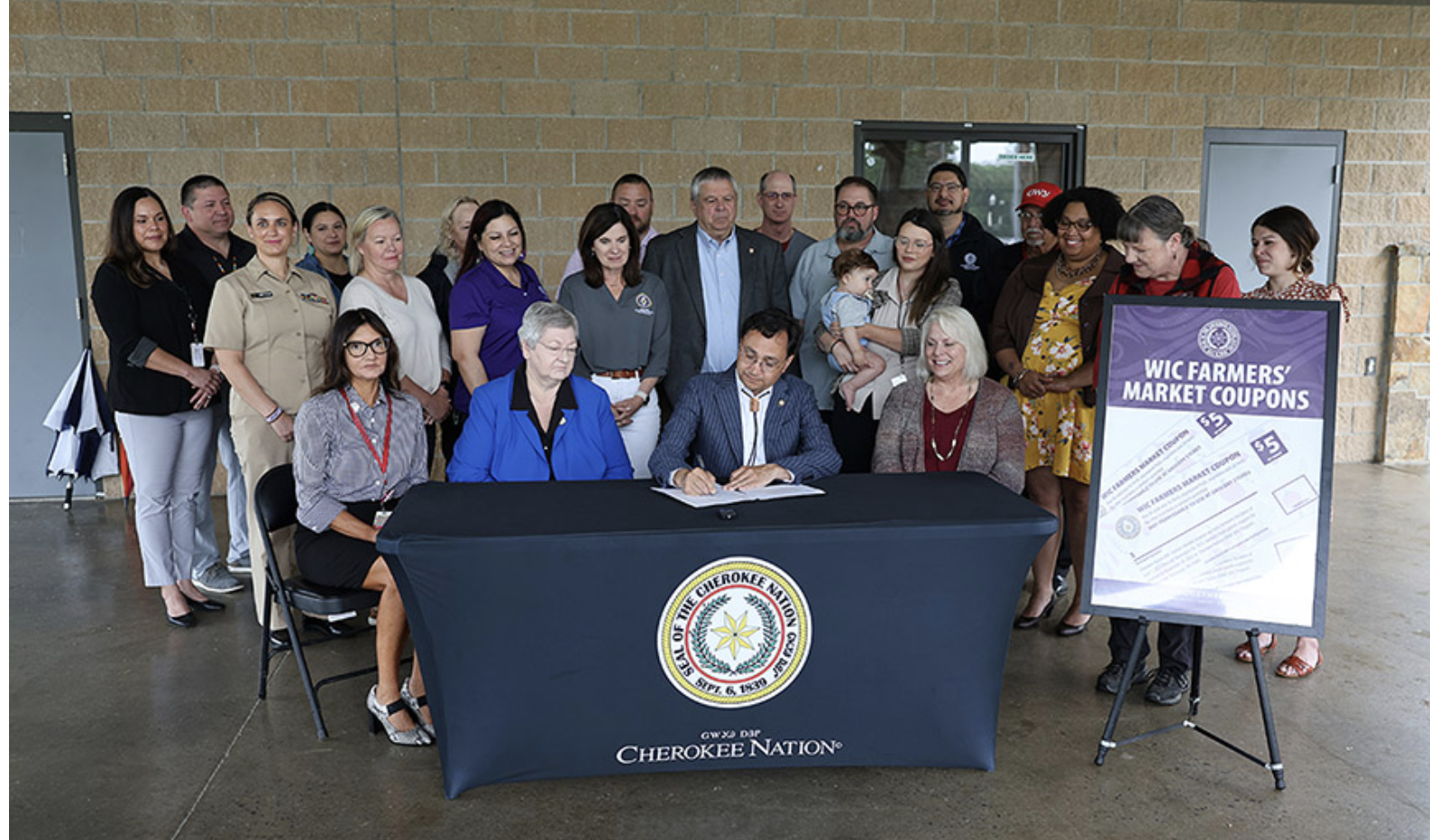
- Details
- By Chuck Hoskin Jr
Guest Opinion. In the first years of any child’s life, parents should be able to focus on loving and nurturing them. They should never have to worry about getting enough healthy food. Fortunately, for a majority of mothers and young children across the country, the Women, Infants and Children (WIC) program is a lifeline. This federal program provides nutrition education, food, baby formula, breastfeeding support and other essential help for pregnant and postpartum mothers, infants and children up to 5 years old.
Cherokee Nation operates WIC on our reservation in northeast Oklahoma, and we know our program improves the health of Cherokee families. Now I am proud to announce an expansion of our success. Recently, the United States Department of Agriculture (USDA) awarded Cherokee Nation the country’s largest Community Innovation and Outreach (CIAO) grant, valued at $1 million over the next 18 months.
Our program serves everyone who meets income guidelines, and Cherokees make up about 60% of participants. This new funding will help us reach even more families across the 7,000-square-mile Cherokee Nation Reservation.
Joining WIC can mean a much stronger, healthier start for children and new mothers. However, currently only about half of the eligible families in northeast Oklahoma are benefiting from this incredible program. Improving our WIC outreach efforts is crucial.

Expanding the WIC program is not just about providing food. It is about empowering families with the knowledge and resources to make healthy choices. With new dollars we can increase outreach, gather data and conduct surveys in communities to raise awareness about WIC. This will help us identify the places that we can make improvements long term.
One of the exciting initiatives that will benefit from this expansion is the WIC Farmers’ Market Nutrition Program. We recently announced a separate USDA partnership with area farmers’ markets across the reservation to provide WIC participants with a $30 benefit added on an eWIC card for healthy fruits and vegetables. That $244,000 USDA grant will support local farmers and encourage healthier eating.
Cherokee Nation also plans to launch the First Steps to Hope program soon to help reduce the adverse effects of poverty on Cherokee newborns. Eligible WIC participants will receive an additional $400 monthly stipend for up to 18 months or until their child turns 1 year old. This pilot program, funded by the tribe’s ARPA dollars, addresses the immediate needs of families, including food, while also providing resources for long-term self-sufficiency. We will evaluate the impact of this short-term program to better inform future efforts at providing basic income support to Cherokees in need.
We encourage all eligible families to apply for the WIC program and take advantage of the array of services it offers. Living within the Cherokee Nation Reservation is the primary eligibility factor, and individuals do not have to be Native American to qualify. We are grateful for the USDA's partnership and support in expanding our WIC program.
Cherokee values teach us to invest in our children and young families. We continue to advocate for policies and programs that address the underlying factors, like poverty, education and access, that lead to food insecurity and Native health disparities. Together with our federal partners at USDA and other agencies, we are providing the tools for Cherokees to lead healthier and longer lives.
Families can learn more about the WIC program by calling 1-800-256-0671, ext. 5589, or visiting https://www.cherokeepublichealth.org/WIC.
Chuck Hoskin, Jr. is the principal chief of the Cherokee Nation.
More Stories Like This
The Lie We Keep Telling About Wounded KneeAnother Weapon of Mass Destruction
Colorado cannot heal until it confronts Sand Creek honestly
Native American Mothers Deserve to Live
Technology Rooted in Tradition is Strengthening Cherokee Nation
Help us defend tribal sovereignty.
At Native News Online, our mission is rooted in telling the stories that strengthen sovereignty and uplift Indigenous voices — not just at year’s end, but every single day.
Because of your generosity last year, we were able to keep our reporters on the ground in tribal communities, at national gatherings and in the halls of Congress — covering the issues that matter most to Indian Country: sovereignty, culture, education, health and economic opportunity.
That support sustained us through a tough year in 2025. Now, as we look to the year ahead, we need your help right now to ensure warrior journalism remains strong — reporting that defends tribal sovereignty, amplifies Native truth, and holds power accountable.
 The stakes couldn't be higher. Your support keeps Native voices heard, Native stories told and Native sovereignty defended.
The stakes couldn't be higher. Your support keeps Native voices heard, Native stories told and Native sovereignty defended.
Stand with Warrior Journalism today.
Levi Rickert (Potawatomi), Editor & Publisher

